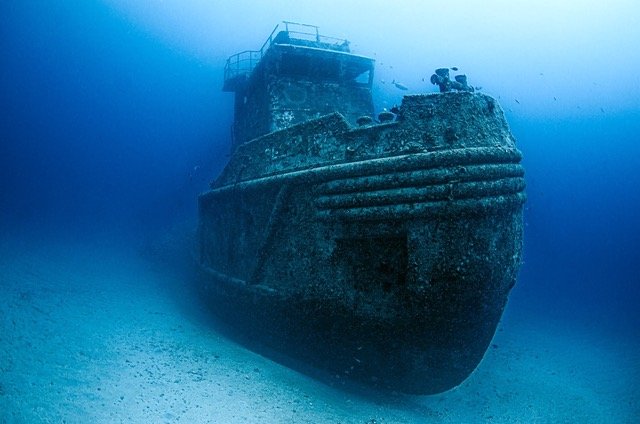This past week we paid our last respects to one of the greatest songwriters of our times, Gordon Lightfoot. Credited with being one of the most influential, if not prodigious folk musicians of the last half century, he died at eighty-four this past week. Gord, as he was affectionately called, penned some 300 songs over the course of his sixty-year career and was the inspiration behind hits from Elvis, Paul Simon, Bob Dylan and the trio Peter, Paul and Mary, to name only a few. Quoting Dylan, “I can't think of any Gordon Lightfoot song I don't like. Every time I hear a song of his, it's like I wish it would last forever.”
When I first attended a Gordon Lightfoot concert over thirty years ago, the eight track tapes I bought during intermission eventually wore out my rewind button in my car stereo, as I looped Rainy Day People or Summertime Dream continuously. Before all those tapes wore out completely, I recorded them over to cassette tapes, then eventually bought his entire anthology of songs in CD, which we play like a bad habit around our house. When we heard he passed away quietly this week of natural causes, we dug up the scrap of paper where he scribbled his name, and we felt the loss of a song-friend we had known all our lives.
If you are in your twenties or thirties, you may not be familiar with his vast repertoire of evocative songs. If you are older, you know how one of his songs can transport you to some northern lake where you can hear the call of a loon, or to a small town where a lonesome train whistle whines. Either way, his songs left us with chapters of soulful and singable lyrics, and melodies you could whistle all day long. And if you will take a brain break in the middle of your day to listen to Knotty Pine, or East of Midnight, I can assure you the day will be transformed into another world where ships plunge through the Great Lakes loaded down with virtuoso guitar licks and penetrating, resonate harmonies. Are you longing for a moving adventure, a daydream that was never fulfilled? Pull up a listen and sit back. His songs are full of them.
I met Gordon Lightfoot in college when my studies weighed like a foreboding cloud and friends and family seemed distant. He was there when I retreated to my tiny room just off campus made a cup of tea, sat down on my futon with my Irish Setter, and put on one of his albums. I had no God that I knew of then, but I was kept company with his songs that transcending his own failed relationships, alcoholism, and lost homes. At least for a short time, I could immerse myself in Sundown or If You Could Read My Mind and know that I was free from whatever ghosts were creeping up the back stairs of my apartment. We should all be so lucky to find the safety of one favorite Lightfoot song, one that will help us find our own personal bridge between the wherefore and the why.
I saw him again in concert last fall when he walked out on stage in Columbus Ohio on what would be part of his last tour. During the performance Gordon had to be administered oxygen, which is a bit frightening to witness as a spectator, and there were more than a few in the audience who wondered why he would come out and put himself through another appearance. However, a few bars into each song, it was obvious he was going to go out of this life doing what he loved the most, celebrating the tracks of his life on stage with his fans. His playlist was short, perhaps 12 songs, but he had the same enthusiastic verve he always had, tapping his feet to each song, staying within a safer vocal range, and occasionally needing to be prompted on a few lyrics. Just a few weeks later, Gordon fell and broke his wrist and had to cancel the rest of that US and European tour. More than once I thought he may not make it through, but his rendition of The Wreck of the Edmund Fitzgerald got a standing ovation, a fitting tribute to the “chimes that rang twenty-nine times for the wives and the sons and the daughters.”
What Gordon Lightfoot was telling us through his last go-round of fragile concerts, was that he was still on a magical ride connecting us to the tattle-tail sound of wind in a sail, drinking his second cup of coffee or wearing polka dot underwear. His iconic The__Canadian Railroad Trilogy, the unofficial Canadian anthem, came from his love of country as he sang us through a landscape of steel workers, then through the nickel mines of Sudbury, and all the whistle stops in between. He missed a few notes here and there, but don’t we all? For those of us who have been riding shotgun with him through the years, his renditions were reminders that Gordon’s life was still full to capacity and that he, like Don Quixote, would be the last Canuck standing:
Reaching for his saddlebag
He takes a battered book into his hand
Standing like a prophet bold
He shouts across the ocean to the shore
Till he can shout no more
Should you take the time to listen to a Lightfoot song, try one that didn’t make it to the top of the charts, and see if you aren’t moved either to dance, or to tears, or to start taking guitar lessons. At one concert I attended many years ago, he wistfully remembered the days when he was travelling from one gig to another, spending long hours in ramshackle hotels where Dylan or Willie might stop themselves and share songs all night long down in the lobby. Spending countless hours in my dorm room studying, I often had Gord playing in the background, but honestly, I always felt like I could have been sitting with him in a speak-easy having a drink, or in front of a fire swapping jokes. For a songwriter to tell a story, for him or her to take you on an adventure with them while they sing is indeed a rare and rousing trip. The beauty of Lightfoot’s songs is that we can still go there with him through his music, even if he is on another steamship that we hear on Lake Superior, passing us in the night.
As I wrap up this short tribute to Gordon Lightfoot, I invite you to google one of my very favorite Lightfoot songs called I’m Not__Suppose to__Care. You may listen to the melancholy of a man who spent some time out in the rain, who battled with desperation and depression and disappointment, but in the lyrics, you’ll also hear a singer that still had places to go and people to see, and the gift of his prolific songwriting to share. As he says in the song, “I’ll give you the keys to my flying machine if you like,” but along the way you may find yourself canoeing through his Canadian wilderness home, or perhaps sitting in front of a fire, watching the flames flicker out with one of his beautiful ballads playing softly, my love, in the background.


















